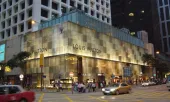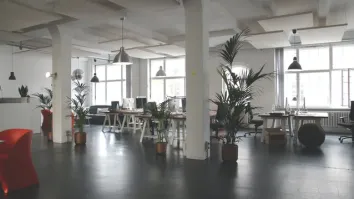
Jakarta retail supply to inch up 3.2% to 4.9m sqm in Q4
Three shopping centers will open in the next six months.
Before Covid-19 spread further, several malls were launched though they have yet to be fully operational. According to Colliers, after seven years, Astha added new retail spaces in CBD. This mall is located within District 8 complex (developed by Agung Sedayu), brought total retail space in the CBD to 0.85 million sq m.
Colliers notes total supply of retail space in Jakarta is currently recorded at 4.78 million sq m. A line-up of three shopping centers are preparing to open in the next six months which will deliver total supply to 4.9 million sq m in Q4 2020, up by 3.2% YOY.
In the greater Jakarta area, Chadstone Cikarang and Vivo Mall Sentul added up retail inventory to 2.7 million sq m in Q2 2020. Another four malls, totaling around 125,000 sq m, are queueing to enter the market in the next six months. The cumulative supply is projected to reach 2.9 million sq m by the end of 2020, up 6.7% YOY.
On the other hand, the Covid-19 outbreaks will likely hamper some future shopping centres’ completion schedule. The disruption in the distribution of building material has made under construction projects come to a halt.
In early Q2 people's awareness in avoiding public space resulted in the downturn of mall visitation which at the end pushed landlords to temporary cease mall operation. Given that, some under construction mall have decided to re-schedule opening time.
Here's more from Colliers:
POPULAR BRANDS FASTEST TO RECOVER
On the positive side, we still witness the expansion of some retailers highlighted by the progress in fitting out their store, mainly F&B retailers with a small size store ranging from 100 to 300 sq m. We also noticed renovation work on the way for the opening plan sometime in the second half of 2020.
Having said that, despite the closure of several stores during the pandemic, average occupancy rate in Jakarta remained stable at around 80%. Nonetheless we are anticipating a lower figure over the next two quarter particularly due to influx of a large retail space during the uncertainty as a result of the outbreak. By the end of 2020, we estimate occupancy will drop to 78% in Jakarta and 74% in the greater Jakarta.
Of all the challenges in the retail business, this industry keeps on offering innovation. As one of the most dynamic sector, retail industry continue to introduce new store concepts and formats which will force shopping centre to be more flexible and is willing to provide a tailored area to meet the retailers’ specific requirements.
Mobile offer and pop-up stores are becoming increasingly more popular. New flagship stores for desirable brands as well as limited-edition merchandise were also being introduced in order to encourage customers back to the malls rather than just do on-line shopping.
NO PLAN FOR RENTAL INCREASE IN 2020
The majority of existing malls will take a stance to keep the prevailing existing rental tariff at least until the end of 2020 while expecting retail business to fully recovered in 2021.
However, in order to maintain occupancy rates, landlords have done some effort in providing attractive packages for their existing tenants related to rent, such as allowing the delay in rental payments or reducing spaces. Furthermore, landlords also offer competitive pricing for the new tenants.
Average rent in Jakarta area was still relatively stable at IDR573,000 over the last six months. Most of the time, the correction in rental rate was due to the entrance of new malls which escalate the overall rent and this is the case for rental increase expectation by the end of 2020 which will be around 2% compared to the present time. The average rent in the greater Jakarta also stayed somewhat stable at IDR393,687. Going ahead, the influx of new malls will conversely change our rental calculation down at the end of 2020.
Some landlords have set new service charge tariff prior to the occurrence of Covid-19. In Jakarta, service charge was recorded at IDR149,740. During the pandemic, landlords are expected to reschedule the plan to increase service charges, however, new malls have already planning on adjusting service charge tariff in Q4 2020 up around 3% as compared to the current rate.
In the greater Jakarta, the maintenance tariff increased 3.3% QOQ to register IDR121,075 in Q2 2020. Service charge in Q4 2020 is estimated to decrease compared to Q2 2020 following the plan that new malls opening in H2 2020 will peg their service charge slightly lower than the average market.
POST COVID – BRING SHOPPERS BACK TO THE MALL
Coronavirus pandemic has redefined the priority in retail business. Shopping centers will face a new challenge and need to adapt when re-open. Open-air shopping centers will be preferred over enclosed shopping malls.
Department stores and luxury brands may likely be the most impacted because people restrain in spending on goods due to job loss and salary cut. F&B retailers and cinemas will take more times due to capacity limitation.
Foot traffic strategy will look a little different in a post-COVID-19. Retail business needs focus on cost efficiency and find creative ways to bring the shoppers back to the mall.
Shopping centres are continuously looking for solutions that will distinguish them from the competition and attract consumers by creating a tailored offer, beyond shopping experiences. Convenience and competitive advantage are the two qualities that will define a successful shopping centre of the future.
Offering ever-changing experience is another way for landlords and retailers to attract and keep customer satisfied. A deep understanding of customer desires should be the foundation of defining the strategy and building various customer segments based on preferences and product categories. Retailers can add better service with connected inventory to facilitate customers in getting the products.



















 Advertise
Advertise



